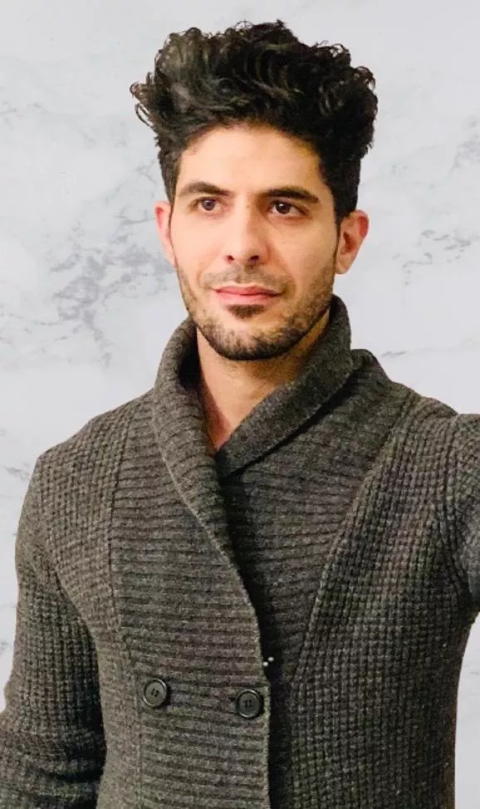
Michael Robustelli knows from experience that the path of discovery is not a straight line. During a lucrative career as a commodities trader in NYC, Michael felt something was missing.
“My dad tells me that at age seven I wanted to become a doctor,” he remarks with a smile. “I needed to get back to that childhood instinct.”
Acknowledging his ground-swelling desire to achieve a goal beyond the acquisition of wealth, Robustelli left New York and moved his family to New Hampshire where he enrolled in Great Bay Community College and subsequently accepted a nursing job at Portsmouth Hospital. He then earned a bachelor’s degree in nursing from Southern New Hampshire University and, determined to pursue his career to a deeper level, earned a master of science degree as a family nurse practitioner, graduating from UNH with honors.
As a nurse practitioner with Goodwin Community Health Center (part of Seacoast Community Health), Michael discovered that “treating the patient’s body without addressing underlying mental health issues perpetuates the cycle of crisis so the pattern repeats.” Witnessing this repetitive pattern first-hand propelled him to complete the Post-Master’s Psychiatric Mental Health Nurse Practitioner certification program through UNH Online.
Optimistic about the future of mental healthcare, Robustelli is starting his own business as a practitioner, using telehealth as a tool to provide patient access. The public health crisis has exacerbated mental health needs due to the strain caused by social isolation, anxiety, unemployment, and financial stress. He notes that children are especially affected by the restriction on peer interaction and they have difficulty creating bonds with others wearing a face mask. While Michael misses the face-to-face exchange, he knows that telehealth increases access to patients living remotely or without means of transportation.
With many of his patients struggling with substance abuse disorder, Robustelli explains that while genetics may create a predisposition for addiction, childhood trauma - such as emotional, physical, or sexual abuse - is often the event that triggers the behavior.
“I first witnessed the devastation of substance abuse in the NYC subway but without the awareness or means to address it. Now I have the training and tools to give patients what they need to embark on a journey of self-discovery toward a happier life.”
Michael talks about a patient with an opioid addiction who, unable to keep a job, was forced to live in a tent in the woods. He discovered that underneath the addiction, the patient was responding cyclically to the bipolar disorder driving his substance abuse behavior. After addressing both conditions, the patient stabilized, subsequently finding a job that allowed him to move into an apartment with his partner and new baby. Simply but perceptively, Michael says, “this change has created a new brightness within him.”
Due to his previous UNH campus experience, selecting the university’s PMHNP program was an easy choice. But, since remote learning offered the perfect fit with work and family demands, he enrolled through UNH Online. Impressed with the coursework, Michael also speaks highly of the faculty. “This is not just a job for them. They were an ongoing cheerleader throughout my training.” He advises prospective students to prepare for hard work but believes that anything worthwhile requires tenacity and sacrifice. “I have a little motor inside that constantly drives me forward. Rather than be worn down by schedule challenges, I let my children decide my study hours.”
What is next for Michal Robustelli? He plans to return to UNH to earn a DNP and is considering a specialty focus on sleep disorder, a frequent companion to anxiety, depression, and addictive behavior. In the field of mental healthcare, Michael wants to see increased funding and access to residential programs that provide structure and support for recovery while teaching the skills of self-help without the stigma often attached to psychiatric treatment.
Recognizing that the pandemic places extra challenges on both practitioners and patients, Robustelli pursues his interest in martial arts and seeks solace in his spiritual life.
“Provider-patient relationships naturally include the transference of emotional content. To project calm and confidence to my patients, I must be at peace with myself.”
For each of us, the journey of discovery is woven by the multi-layered fabric of a lifetime.
Written by Gwendolyn Goguelet